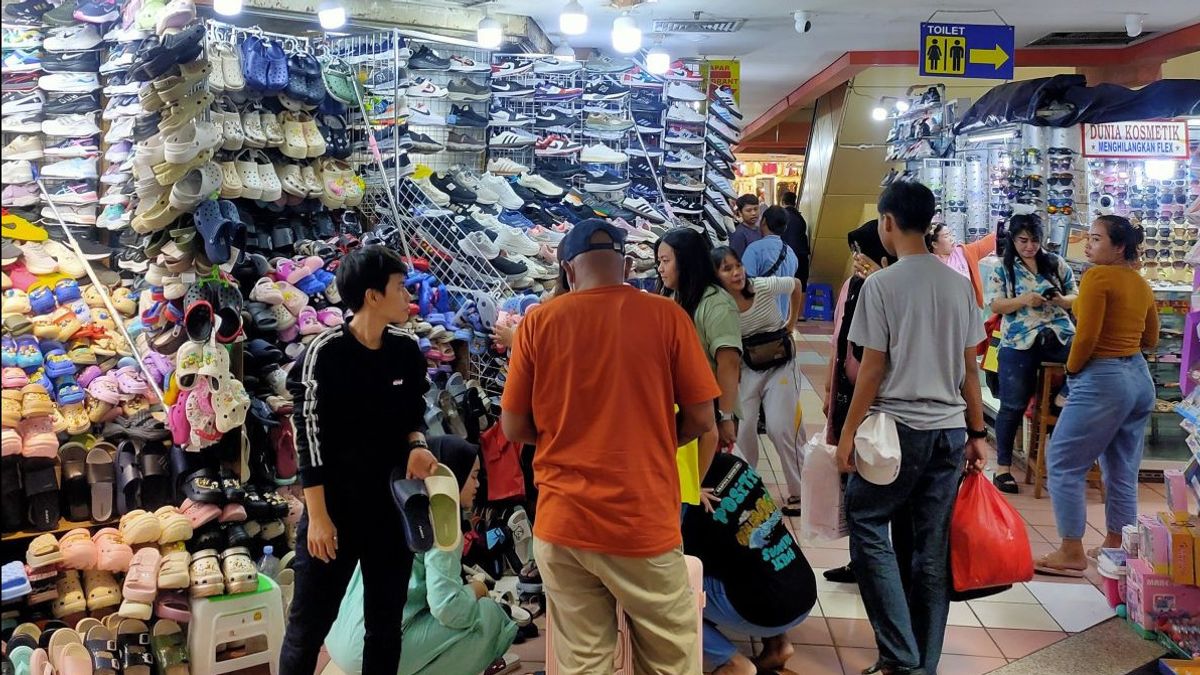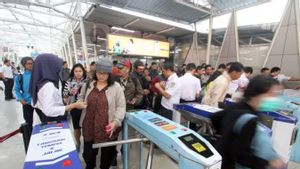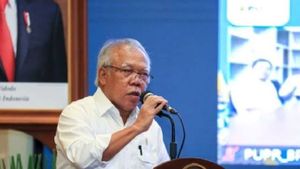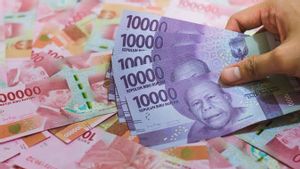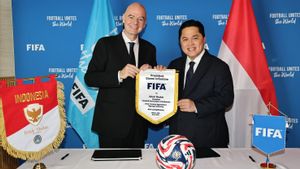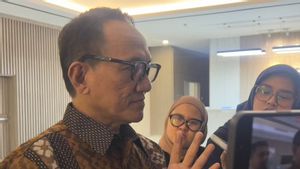The Ministry of Industry (Kemenperin) has opened its voice regarding the issue of pirated goods in Mangga Dua, Jakarta, which was highlighted by the United States (US) in the 2025 National Trade Estate Report on Foreign Trade Barriers annual report.
The report was made by the United States Trade Office (USTR).
In its report, the US highlighted the violation of intellectual property rights (HKI), pirated goods and trade barriers that still interfere with the market access of US companies in the Republic of Indonesia.
Spokesperson for the Ministry of Industry Febri Hendri Antoni Arif said that pirated goods are mostly imported goods that enter Indonesia through the usual import mechanism or through e-commerce by utilizing the warehouse of the Bonded Logistics Center (PLN).
Febri assessed that one way to eradicate it is to make regulations requiring that brand certificates must be held by importers and by sellers of imported goods that air on e-commerce pages.
The Ministry of Industry itself has included the trademark certificate requirements that importers must have when asking for import recommendations. This is stated in the form of Regulation of the Minister of Industry (Permenperin) Number 5 of 2024 concerning Procedures for Issuing Textile Import Technical Considerations, Textile Products, Bags and Footwear.
Through this Permenperin, importers who do not have a brand certificate will not get an import recommendation from the Ministry of Industry when importing TPT, bag and footwear products.
So that rogue importers who will import the three commodities will not be able to bring their pirated goods into the Indonesian domestic market if they do not hold a trademark certificate from the principal.
"The Ministry of Industry has issued Minister of Industry Regulation Number 5 of 2024 which requires importers to hold brand certificates from brand holders when they ask for technical considerations (Pertek) as part of fulfilling the requirements for Import Application (PI) of the Ministry of Trade (Kemendag). The goal is to filter and prevent pirated goods from being imported into the Indonesian domestic market," Febri said as quoted from his written statement, Wednesday, April 23.
However, Febri said, these regulations were not liked by rogue importers who wanted to import pirated goods into Indonesia.
According to him, the policy also lacked support by other ministries/agencies, instead they asked for discretion and relaxation of the implementation of the policy.
The absence of regulations requiring importers to have a trademark certificate from the principal or brand holder for the goods they imported resulted in the easy entry of pirated goods into Indonesia.
So, it is only natural that many pirated goods are still circulating in the Indonesian domestic market, especially in Mangga Dua and are included in the USTR annual report.
"Unfortunately, the Minister of Industry 5/2024 is short-lived and no longer valid because Permendag 36/2024 as the basis for the issuance of the regulation was suddenly changed by the office of other ministries/institutions to Permendag No. 8/2024 in May 2024," said Febri.
"As a result, there is no obligation for importers to submit trademark certificates from principals when they apply for imports to the Ministry of Trade and the Ministry of Industry. In fact, the trademark certificates held by importers are the main filters so that pirated goods are not imported into the Indonesian domestic market by importers, especially general importers," he continued.
The Ministry of Industry assesses that efforts to monitor and take action against the circulation of pirated goods in the domestic market will not be effective considering the large volume of imports of pirated goods and the breadth of Indonesia's domestic market.
In addition, the offense of complaints as the beginning and basis of prosecution is also difficult to fulfill because most of the principals or brand holders are abroad. Therefore, the Ministry of Industry encourages the principle of better preventing imported pirated goods through regulations than taking action in the domestic market.
"How is it possible to take action against pirated goods that have been circulating in large volumes in this large domestic market? Especially if it has to be with a complaint offense? Isn't it better to prevent pirated goods from entering through import regulations or non-traff barrier/non-traff measure policies than to monitor them in the domestic market? Moreover, pirated goods in e-commerce enter through the PLB. Who is supervising? We have never heard of any supervision and prosecution of pirated goods at e-commerce or PLB," explained Febri.
Then, Febri gave an example in eradicating pirated goods or illegal goods.
另请阅读:
In the Handphone, Handheld Computer and Tablet (HKT) sector, for example, the Ministry of Industry is also trying to take firm steps.
When many pirated and smuggled smartphones are circulating in Indonesia, the Ministry of Industry imposes an IMEI registration policy for every smartphone imported and sold in Indonesia.
"Producents, importers, distributors (ATPM or APM) must show brand certificates when they apply for IMEI to the Ministry of Industry. Currently, the circulation of illegal smartphones or smuggled goods from abroad has decreased significantly or nothing at all," explained Febri.
The English, Chinese, Japanese, Arabic, and French versions are automatically generated by the AI. So there may still be inaccuracies in translating, please always see Indonesian as our main language. (system supported by DigitalSiber.id)
